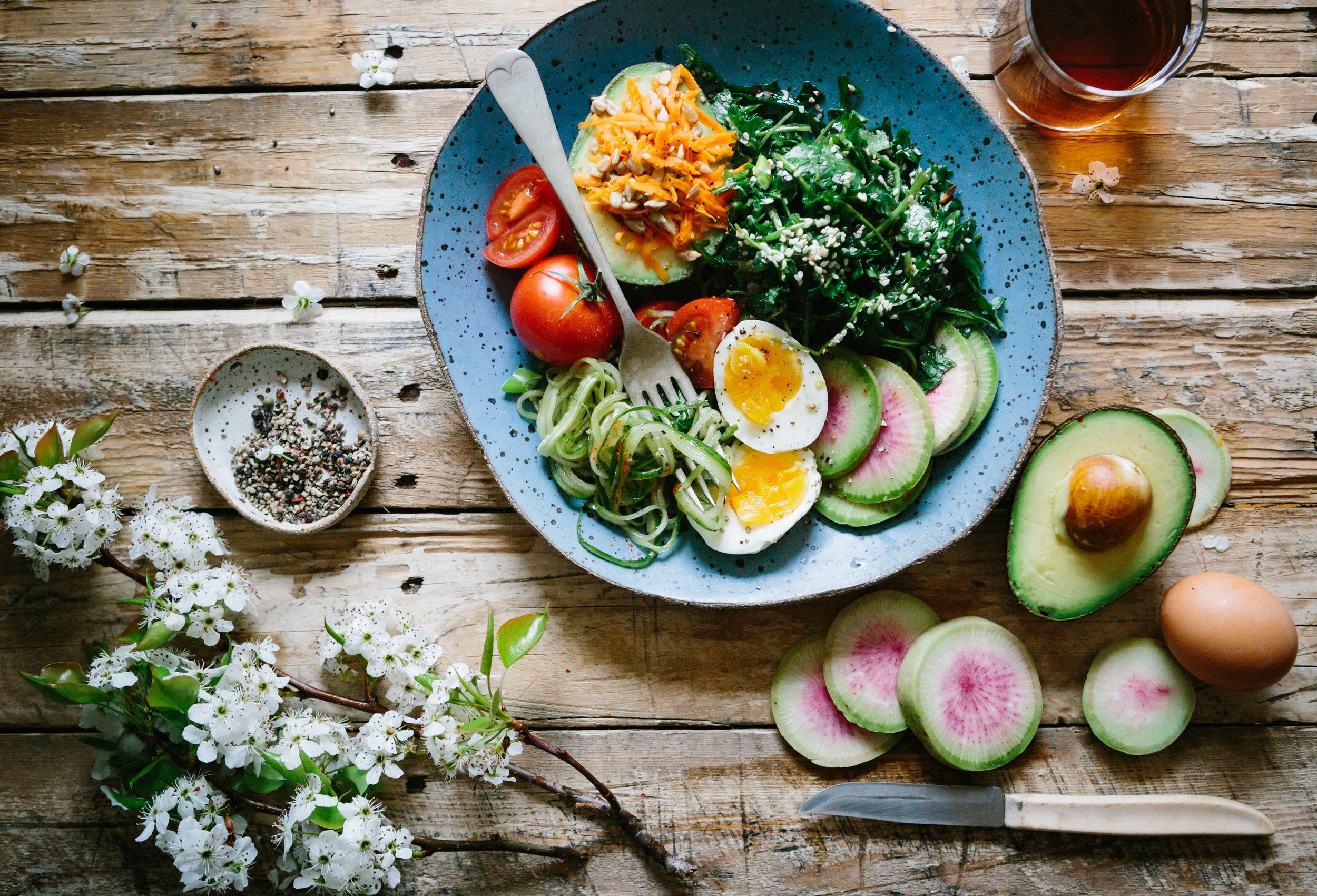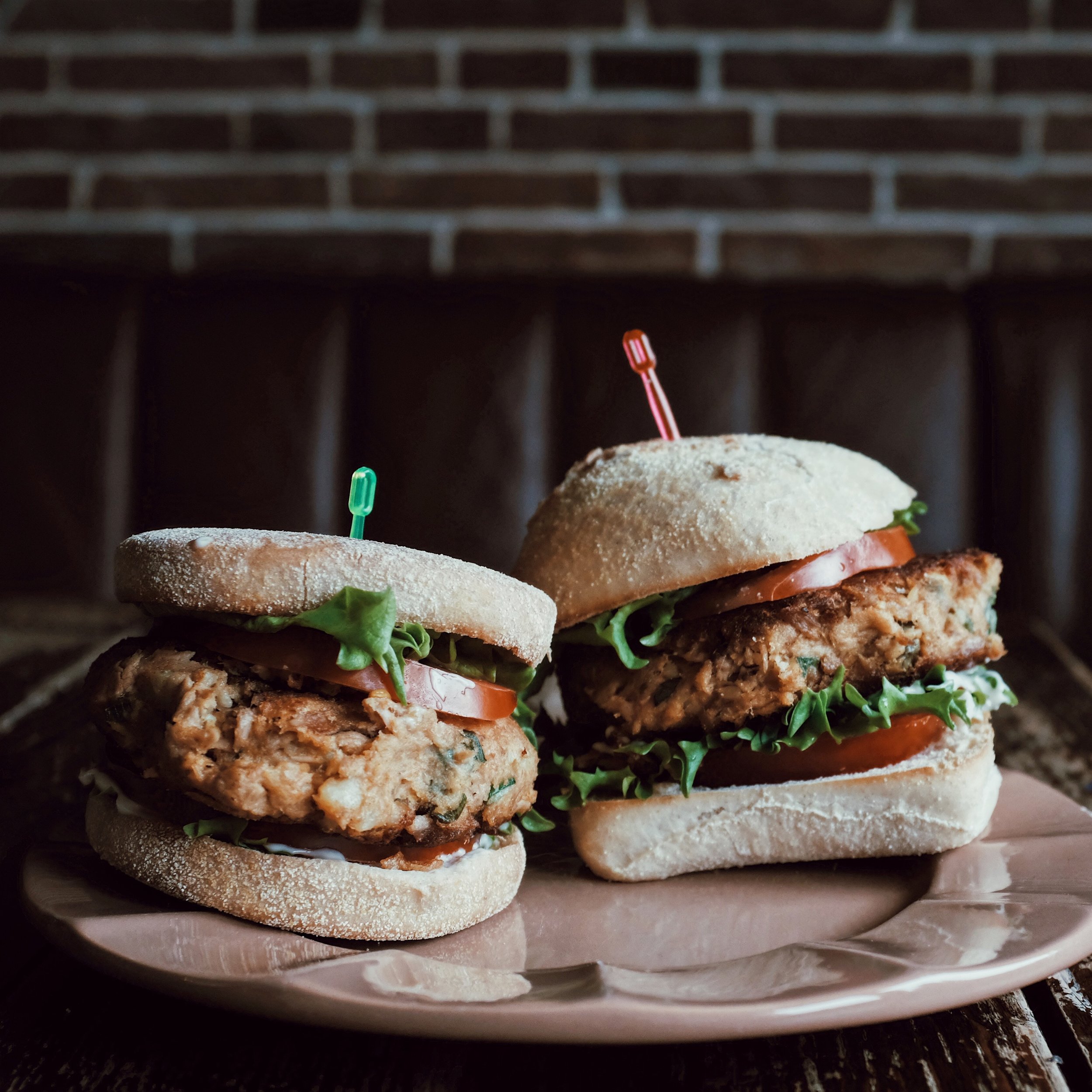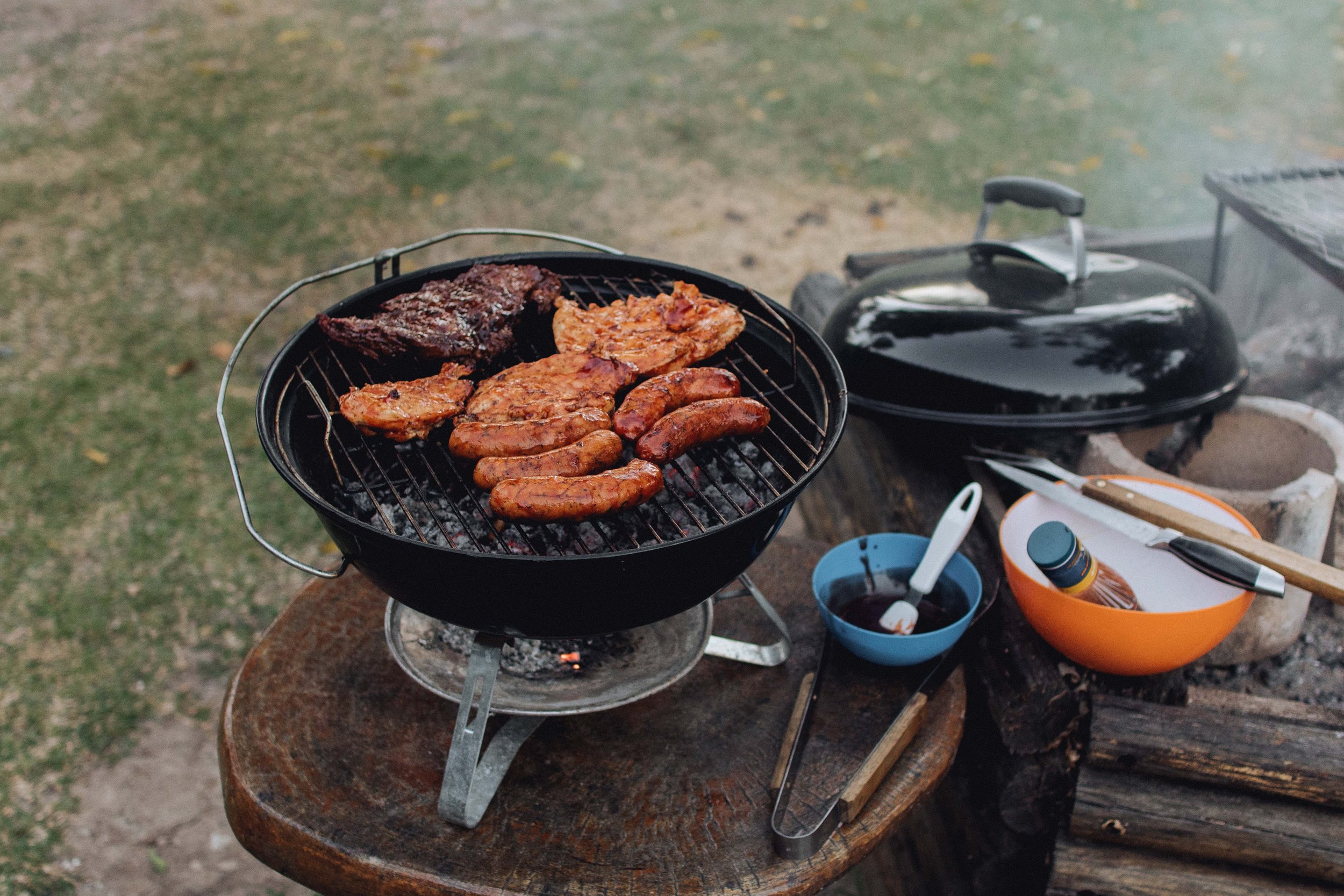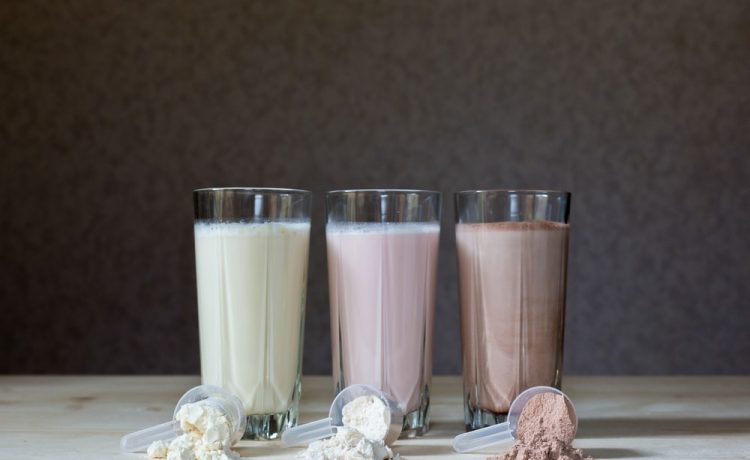Top Tips For Lean Living
🎯 TOP TIPS FOR LEAN LIVING
We've had some questions recently on 'what's the best diet to get lean' and to be honest, there are many 'methods' that work, but it's PRINCIPLES that should form the basis of any diet approach.
If you’re ever confused about what it takes to build a lean body or you’re sick and tired of following the old Trial and Error approach, then read on…
It CAN be super simple to eat for optimal Heath in life and Performance in the gym but it’s potentially trying to navigate the endless stream of conflicting online articles or videos that show you THE way to eat.
It must seem as though you can’t eat anything anymore.
“Carbs are the devil” is often spouted when Lean Muscle is the goal but on the other hand you have proponents of “You must eat carbs to train hard and fuel growth.”
Then it’s “You must eat as much Protein as possible as it’s essential for building muscle” (sorta true but there’s a better approach to this that won’t cripple your bank balance!)
It’s frustrating to have to second guess what will work, and likely leaves you jumping from one diet to another.
It doesn’t have to be this way.
You don’t have to become one of those who sells their soul to a particular diet or ‘way of eating’.
We have ourselves trialled and tested many dietary approaches on our own bodies and against our busy lifestyles.
Some have worked for us, some haven’t.
And from the data we’ve collected we can outline a number of simple guidelines below, that when implemented, can help you navigate your way to superior health and fitness.
By following these basic principles, you could expect to achieve…
✅ Less frustrating and effortless fat loss
✅ Lean muscle gains (i.e more toned & defined with less body fat)
✅ Increased energy during your day
✅ Clearer focus on cognitive tasks
✅ Improved digestion function
✅ Improved immunity against common illness’
✅ Upscaled sex drive
✅ Less aches, pains and ailments
✅ Happier moods
So, let’s dive into the principles…
#1 Eat REAL food 90% of the time
Any diet NEEDS to have it’s roots firmly in the Health improvement category first and foremost.
Ever heard “You can get a ripped body eating a Maccy D’s diet”??
That is true from a calorie balance perspective but would be terrible for health.
Just because you’re doing a tonne of exercise doesn’t mean you can drive in the haribo or fudge cake, or keep lucozade in business whilst working out!
You have to be smarter than the average bear.
Eat like a damn adult and take responsibility for your health.
You can’t not drink water because it’s boring or skip veggies because you don’t like them (tip: there’s more than 5 different veg to eat)
That’s what kids do - they make excuses and can get away with it.
You’re an adult, so can’t!
Your diet MUST be focused on optimising your Heath and well-being.
After all, who doesn’t want improved quality of life day to day?
And whilst we can argue what the most optimal diet is we can’t argue about this fact…
The healthiest diet you can eat consists of a large variety of whole foods which means things that grew in the ground (fruits, veg, nuts, seeds, grains etc) or were alive (fish, meat, eggs etc).
Is the thing you’re about to eat containing more than five ingredients? It’s probably junk.
Have you never heard of or can’t pronounce some of the ingredients on the label? It’s definitely junk.
And in either case, you want to avoid at all costs (90% of the time).
In other words, the basis of your diet should contain lots of these:
Colourful Veggies
Fruits
Potatoes
Grains
Rice
Oats
These foods will provide you with carbs to fuel training and daily life, plus load you up with essential vitamins, minerals, and antioxidants.
(You DO need carbs in your diet but more on that later).
After plant foods form the foundations, you need to add in some animal products, like meat, fish and eggs (and potentially some dairy), which will provide you with the following:
PROTEIN – The building blocks of our body, This is essential for building muscle and improving your performance in the gym.
One gram (of protein) per pound of bodyweight per day is the top end target you should aim for.
Healthy Fats –
FATS - Essential for proper hormone function, overall internal health and fighting off chronic illness’.
VITAMINS & MINERALS – One thing some Vegans or Vegetarians find is that they will become deficient in a few essential nutrients that can’t be gained from a plant based diet.
Things like B Vitamins, Copper, Zinc, and Iron need to be found from other sources.
Luckily, animal foods are the best sources of some of these nutrients. This combination of whole, unprocessed plant and animal products will give you the most nutrient dense diet possible.
And firstly a nutrient dense diet vs a calorie dense diet means you will have everything you need to perform each day.
#2 Eat Your 'Freedom Foods' 10 % Of The Time
If you’re smart with your diet and track your macros as we suggest, you’ll still have plenty of room to eat tasty, delicious foods every day as well as include some treats that are deemed not so healthy!
Maybe having a few slices of pizza or a big juicy burger or even a slice of cheesecake when you’re out for a social occasion.
As long as you are not exceeding your daily calorie ‘allowance’ in accordance to your goals you’ll be fine.
This is typically a ‘flexible dieting’ approach and one that can really help mentally when wanting to make body shape changes but the emotional side of dieting is letting you down.
The key to flexible dieting is to have your calorie and macronutrient targets set properly and know what calories your treats contain BEFORE you eat them.
Now, this is no excuse to eat tonnes of crap food.
Remember principle #1 of 90% very healthy foods most of the time, then when it’s a special occasion or you feel like you want a treat, you can indulge a little.
#3 FEEL ENERGISED
A healthy diet should not only make you look good, but it needs to make you FEEL good.
If we feel terrible all of the time then we’re less likely to stick to something long term.
And no matter what ‘diet’ you follow, the research always points in the direction of longterm ADHERENCE to a diet as being the overall winner in producing the best results.
Unfortunately, most diets you see online or in magazines do the opposite. Cabbage soup diet anyone?!?
^ ^ Yes that is a thing int he celeb world 🤦🏻
They might require you to cut out all carbs and keep calories as low as possible which just gives you more ferocious cravings for the things you restrict.
And, your energy for workouts flat lines big time, plus you probably do very little throughout the remainder of your day, meaning NEAT levels drop right down too.
You can’t get by on minimum calories for long. That just sucks big time, and as we mentioned above, you’re never gonna stick to that for more than 2 to 4 weeks.
Sure, you might lose a tonne of weight in that time (but a fair amount will be water weight, especially if carbs are restricted).
But after that, what are you going to do?
You’ll get so sick of the plan that you go back to your old habits and the weight goes right back on.
Instead of diving head first into an extreme approach, try to get the balance right from the start line to promote longevity.
That needs to include enough of a calorie deficit to make things happen (think maybe 15 to 25% less calories per day than you have right now, with the deficit coming from carbs and/or fats).
And the diet needs to give you enough calories to maintain focus to work and operate daily, plus not be completely miserable.
#4 HOW MUCH TO EAT
When it comes to planning out your diet, don’t overthink it.
You can spend hours trying to come up with the PERFECT plan.
You just need to pick a start point that fits YOU and your life.
The ‘secret sauce’ so to speak is the minor tweaks and adjustments you continually make along the way.
This is also where it pays massively to have a Coach or PT help you and look at things from the outside in.
You don’t NEED to weigh and measure everything that you eat and drink (although this approach can be very effective), because that very task could be the roadblock stopping you making decent progress.
But it is a very good idea to do this for a month or so at first to get a picture of a) what you’re currently consuming and b) what is happening to your body whilst consuming that amount of calories.
If you’re guessing what’s going in then you have no idea if you’re eating way too much or just a little bit, so cannot make educated adjustments.
You an use a simple calorie tracking app called MyFitnessPal to help here and for daily calorie targets try this:
For a starting calorie deficit (to lose weight/fat) aim for 12 calories per pound of bodyweight.
To maintain your weight (or if you’re super active day to day) aim for 14 cals per lb BW
To prioritise Muscle gain shoot for 16 cals per lb BW
Remember: these re just starting guidelines and need to be monitored and adjusted every few weeks depending on how your weight, shape and measures are going.
Then look to get
1g per pound of bodyweight in protein daily. (no need to go any higher than this right now)
1.5 to 3g Carbs per lb BW. (if you’re after losing more fat then shot for the lower end of the carb scale)
0.3 to 0.5g fat per lb BW. (Ensure you don’t go lower than 0.3g/lb of dietary fat for hormonal function and support)
And that is as simple as we can get it to begin with!
#5 EAT 2 to 3 MEALS PER DAY
Despite what you read online and in magazines (again!), you don’t need to be ‘stoking the fire’ 6 times a day with big meals.
Plus, a few small snacks between meals can keep you feeling satisfied.
Because the long and short of it is, meal timing and frequency don’t matter all that much.
Especially when the big rocks (Calories and macronutrients) are not taken care of properly.
Overall calorie intake and how much protein, fat and carbs you eat at the end of each day are what really matter.
It’s probably much more satisfying to have 2 or 3 larger meals than having to prepare and find time to eat 5 or 6 smaller ones.
Just ensure a few lower calorie snacks are on hand between meals if the hunger pangs occur.
#6 CARBS ON A DAILY BASIS
You know what, Carbs are not the villain here and your body does need them, but in what amounts is key.
There have been many studies comparing popular diet approaches (Keto, Atkins, Paleo, Zone etc) and in the end, there were no long term difference between those on low carb (less than 50g per day) and balanced diets (of Protein, Fat and Carbs).
Because as we’ve said before, you drop carb intake, you get a sudden drop in bodyweight because with every gram of carbs your body retains 3 to 4g of water.
Drop the carbs, you drop the water = less bodyweight.
But it’s not body fat you’re losing.
Go back to eating carbs and you pile the (water) weight back on!
Cutting carbs drastically is both unnecessary and counterproductive for your health and body shape goals.
Especially if you LOVE carbs foods! That will be super tough to maintain longterm.
Try and go to social events avoiding all carbs. It’ll be ZERO fun because we’ve been there and done it.
Strangely you’ll lose (overall) bodyfat faster and look a lot healthier with carbs in your diet on a regular basis.
Carbs are an essential component to a good muscle building and body shaping diet, it’s just important to get them in in the right amounts…
…and obviously not exceed daily calorie targets.
#7 CARB TIMING
Here are 2 suggestions for times of the day to have carbohydrates:
✅Around your workouts (pre and post training)
✅At night (debunking the no carbs after 6pm myth!)
If you’re hitting workouts to build strength and a lean body, you need carbs.
They are the single best fuel for that type of exercise.
And you will always feel, look, and perform better by keeping some in your diet.
So, aim to eat 60-90 minutes before your workout and have 25-50 grams of carbs from one of the following:
Oats, rice, potatoes, fruit PLUS a small serving of protein.
Some snack ideas:
👉🏻Protein shake and a banana
👉🏻Oats & whey protein
👉🏻Lean beef and rice
👉🏻Turkey sandwich
👉🏻Chicken and potatoes
If you train in the morning or early afternoon and don’t feel like a meal at that time, don’t worry about it.
Just get 20-40 grams of protein (a scoop or 2 of whey or palm sized portion of meat and another 20-50 grams of carbs such as a piece of fruit or cupped hand of potatoes or rice) and you’ll be set.
The other time of the day to have a large portion of your carbs is at dinner. This works best from a social perspective because it gives you flexibility to enjoy a satisfying meal to close off the day.
Plus, the ‘carb coma’ 😴is a thing and digesting starchy carbs can have a positive effect on sleep quality.
And better sleep means better recovery from your exercise.
Again, just make sure to get the portions right to fit with your daily goals. 1 to 2 cupped hand sized portions of carbs will suit the majority of people here.
#8 Food Should = Feeling Good
Just search the internet or scroll Insta and you’ll see article and posts explaining why a particular food is ‘bad’ for you.
Too much of anything isn’t always the best approach anyway, and being as balanced as possible will be optimal.
Some will tell you gluten and grains will keep you bloated and ill.
Others promote fat ‘free’ diets for health which actually cause more issues hormonally than the positives the reduced calories bring.
But, much of the hype fear mongering, click bait, that gets you fearing which foods you should be eating - and probably leaves you confused and falling back to old habits time and again for fear of getting it wrong.
Your whole approach to food would be primarily about feeling good and also function (for the body to do what you want it to).
Here’s a quick 3 step plan to check over for your eating:
✅ 1: Eat the food you usually do.
✅ 2: Take notes of what you eat, how much and what time of day.
✅ 3: Think about how you feel after the meal, not just directly but also a few hours.
Can you relate a particular food to:
👉 Feeling tired or giving you a boost of energy?
👉 Digesting well or leave you bloated and gassy?
👉 Giving you a headache or feeling ‘on it’ and sharper than ever?
👉 You’ll also want to take note of how you feel the next day after eating something because some foods stay in our system and have an effect a lot longer than we think.
For example, I (Rob) feel a bit of a blocked nose come on if I have too much milk or get a bloated tummy from certain carb sources, whilst others have no adverse effect.
Eventually, after a couple weeks of note taking, you’ll realise which foods make you feel best.
Put those ‘feel good’ foods into your diet often and leave out the ones that make you feel terrible or ‘off’.
Yes, there will be social situations that call for you to have these feel bad foods, but just anticipate this and if you enjoy eating those foods in the moment do so, but at least you’ll know what you feel sluggish or a bit off afterwards.
#9 Fearful of Fruit?
If you think that gaining fat from eating too much fruit is your biggest problem then there are more underlying issues around food for you to address.
I guarantee it’s not the punnet of strawberries you ate in one go that’s keeping you stuck with your fat loss goals.
Fruit is one of the healthiest things you can eat and as long as you focus on eating it in it’s whole form and not blending it up all the time or drinking it but he pint you’ll be fine.
There is such as thing as fearing all carbs (fruit has carbs, which are sugar!) so does that mean we should cut out all sugar including fruit?
Uh, no… of course not. Why would we cut out a natural healthy thing such as fruit and likely replace it with more processed food?
That’s just crazy.
Almost everyone always feels better when eating fruit.
So add it back into your diets and look at other ‘calorie dense’ foods such as biscuits, pizza, crisps that you can cut down on or cut out instead.
We recommend 2-4 servings per day if you want to stay healthy, along with a balanced diet of protein and fats to support bodily function and day to day performance.
#10 High Fat / Low Carb Bandwagon
What is the most calorie laden macronutrient gram for gram?
Fats are. With 9 cals per gram! Versus protein and carbs which are just 4 cals/g)
So, don’t go overboard on the “healthy fats.”
That’s a big mistake a lot of people make because of the popularity of low carb, Keto or Paleo style diets.
We should all know that some saturated fat in your diet won’t kill you and should be included.
But just because something is good for you it doesn’t mean you should consume huge amounts of it.
Putting a half a slab of butter in your coffee and eating bacon every day?
Probably want to find out the calorie content of these if you are as it’s more than you think.
A moderate fat diet is and always has been best for the majority of people.
We all know that you don’t get a lean body eating sausages a daily basis or mayonnaise by the jar full.
Low carb, high fat diets do work for a % of people but most are sedentary individuals who need a drastic approach to kickstart fat loss / weight loss.
These are not for hard training guys and girls who want to build a strong, lean
physique.
You should always aim to eat based on your activity levels.
As we know, there are 3 main macronutrients- protein, carbs, and fat and each one plays a specific role in providing energy and fuel for daily activity.
👉🏻 Protein helps us support muscle growth and recovery.
👉🏻 Carbs help fuel high intensity activity.
👉🏻 Fat supports hormone levels and overall health and can also fuel low intensity activity.
If you need energy to exercise with intensity then you need some carbs, and likewise if you want a healthy functioning body then you need some fats.
Protein should be a constant and is required by all (just in case you didn’t know).
#11 High Protein Myth
Following on from yesterdays post, we ended it with ‘Protein is required by all’ but there is a limit to how much is best.
No matter what the supplement companies try to sell you, the fact is you don’t need a tonne of protein to build muscle.
Eating huge amounts of protein does NOT instantly = more muscle growth.
Believe me, I wish it were that easy.
All we’d have to do is drink protein shakes per day and we’d be on the cover of Muscle Magazines everywhere!
But it doesn’t happen like that. All that does happen is we have to wee more, stress our digestive system a bit, potentially get fatter and inflamed.
And we waste money. Supplements are not cheap.
They do have their place and purpose in a healthy balanced diet, they just don’t forth basis of it.
You don’t need more than one gram of protein per pound of bodyweight, per day, to build a lean and strong body.
Just do the maths on that one quickly for yourself.
It’s probably not as much as you think if you have good protein based meals already on your day.
